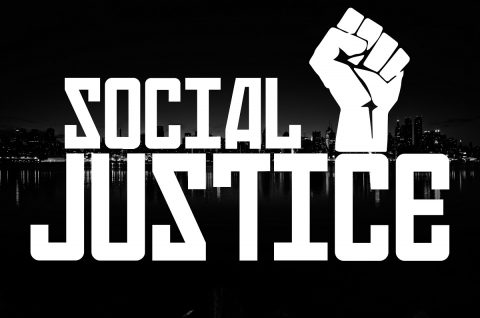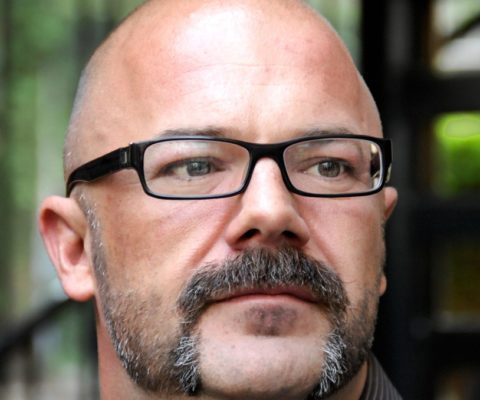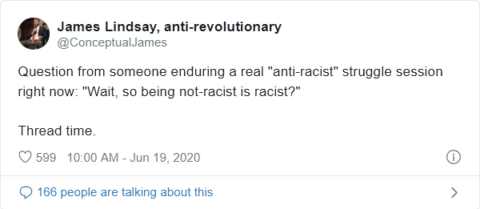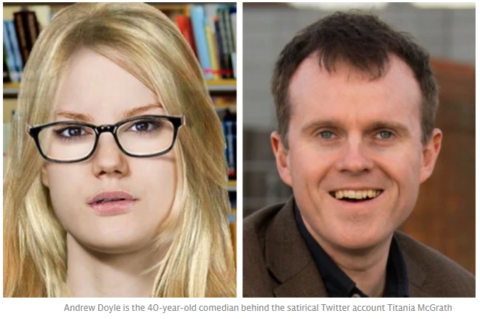This story also points out another problematic issue, one that is the focus of the entire collection (or indeed, Jemisin’s entire career): Racial Identity. This issue could probably be the subject of another whole essay, and the fact that I would be excoriated up and down for writing it would be a condemnation of the rigidly politically correct conformist turn SF fandom has taken, and greater society as a whole.
The reason Racial Identity fails in Science Fiction is because there are only a few ways to cover the topic, and they are extremely limited in impact. They’ve been done to death, and there’s virtually no way to breathe new life into them without making them even less authentic.
The first is what you see in this story. Race as an utterly unimportant factor. We are told by the Narrator that it doesn’t matter – that racially specific descriptors are still used but they don’t carry the negative connotations they do (or at least that she claims they do) in our usage. But if the race of the one highlighted character doesn’t matter in a postulated SF world, then guess what, it doesn’t matter at all. The story could be told with a character of any race in that role if it truly did not matter in that world. Race would be mere window dressing. The only use of that character’s race in this story was to bludgeon the reader with accusations of racism while being straw-manned into saying that who she is is somehow shocking.
Even worse, this opens up the author (unless she’s a black woman) to criticisms of tokenism, or ignoring racial issues, or whitewashing over them. Our friend the “Social Worker” could be accused of “Acting White” since her behavior isn’t specifically ethnic. (This unavoidable criticism becomes a straitjacket on the writer.) But addressing that leads to the next sort of problem.
The second way that Racial Identity fails in Science Fiction is a current-day parable set in the future. If your story set a hundred or a thousand years in the future has race relations that haven’t changed a bit from the current day attitudes, then what is the point? Are you saying that they will never improve? Is racial equality a futile dream, destined to be sabotaged forever by society? That’s pretty dismal. But it could be worse …
The third way, rarely seen, is that relations could be even worse. I haven’t yet encountered any in my own reading, but I imagine the result would take the form of stories set in some kind of racial civil war. And even if the author takes the side of the Black Union, the result really isn’t that far from the fever dreams of the readers of The Turner Diaries. Oh, I suppose it might find an audience in the self-loathing white SJWs who hand out Hugos who feel they deserve to see themselves destroyed by proxy, or militant racial separatists on the other side. But are either of these really that large of an audience, and even if they are, do you really want to serve them?
I suppose the fourth is the Inversion tale. But given how the audience for the third way to write these things reacts to an example like Farnham’s Freehold, their desire to read a racial revenge fantasy has to be tempered by the risk of being declared a racist by their fellows.
By the way, you could say the same thing for almost any form of identity politics. And while it’s possible to have these as an element in the worldbuilding of your stories, to make them the centerpiece of your tale simply kneecaps your tale from the outset. There are four ways to do it, but all of them are wrong. Social Justice has made it so, and the only way to get a pass depends on the skin color of the author.
Dr. Mauser, “Message Received”, Shoplifting in the Marketplace of Ideas, 2019-01-30.
May 8, 2022
QotD: Identity politics in SF
March 29, 2022
QotD: SJW white guilt
If you scratch a Liberal, underneath you find that they are exactly what they hate. In this case, the driving force is what they call White Guilt. The reason they believe that white people are inherently, unchangeably, and institutionally racist is because they see it in themselves, and they therefore believe it is true in everyone else (Hint: It isn’t). But they believe themselves to be better because they acknowledge it, and go through all the rigamarole to make up for it and be a good ally.
In short, reading shit like this is penance for being white. Subjecting themselves to a stream of invective about their failings for being white gives them absolution. It’s kinda like those folks in the BDSM community who seek out a black dominatrix to work out their guilty feelings, and having paid for verbal abuse and a beating, feel that they’ve done their bit for race relations, and for the liberal side of the SF community, Mistress Nora is just the ticket, and they are paying her with sales and awards for all the abuse they can stomach.
Dr. Mauser, “Message Received”, Shoplifting in the Marketplace of Ideas, 2019-01-30.
March 17, 2022
If everything is about justice, then nothing is
At Astral Codex Ten, Scott Alexander wonders why everything these days is said to be about “justice”:
Freddie deBoer says we’re a planet of cops. Maybe that’s why justice is eating the world.
Helping the poor becomes economic justice. If they’re minorities, then it’s racial justice, itself a subspecies of social justice. Saving the environment becomes environmental justice, except when it’s about climate change in which case it’s climate justice. Caring about young people is actually about fighting for intergenerational justice. The very laws of space and time are subject to spatial justice and temporal justice.
I can’t find clear evidence on Google Trends that use of these terms is increasing — I just feel like I’ve been hearing them more and more often. Nor can I find a simple story behind why — it’s got to have something to do with Rawls, but I can’t trace any of these back to specific Rawlsian philosophers. Some of it seems to have something to do with Amartya Sen, who I don’t know enough about to have an opinion. But mostly it just seems to be the zeitgeist.
This is mostly a semantic shift — instead of saying “we should help the poor”, you can say “we should pursue economic justice”. But different framings have slightly different implications and connotations, and it’s worth examining what connotations all this justice talk has.
“We should help the poor” mildly suggests a friendly optimistic picture of progress. We are helpers — good people who are nice to others because that’s who we are. And the poor get helped — the world becomes a better place. Sometimes people go further: “We should save the poor” (or the whales, doesn’t matter). That makes us saviors, a rather more impressive title than helpers. And at the end of it, people/whales/whatever are saved — we’re one step closer to saving the world. Extrapolate the line out far enough, and you can dream of utopia.
“We should pursue economic justice” suggests other assumptions. Current economic conditions are unjust. There is some particular way to make them just, or at least closer to just. We have some kind of obligation to pursue it. We are not helpers or saviors, who can pat ourselves on the back and feel heroic for leaving the world better than we found it. We are some weird superposition of criminals and cops, both responsible for breaking the moral law and responsible for restoring it, trying to redress some sort of violation. The end result isn’t utopia, it’s people getting what they deserve.
(cf. Thomas Jefferson: “I tremble for my country when I remember that God is just.”)
What is “climate justice”? Was the Little Ice Age unjust? What if it killed millions? Is it unjust for Mali to have a less pleasant climate than California? What if I said that there’s a really high correlation between temperature and GDP, and Mali’s awful climate is a big part of why it’s so poor? Climate justice couldn’t care less about any of this. Why not? Hard to say. Maybe because there’s no violation and no villain.
January 7, 2022
“This is not satire. This is academic archaeology gone woke”
In the New English Review, Timothy H. Ives asks whether the many stone heaps across New England are actually the ruins of First Nations sacred sites:

Historic photograph of Woodvale Farm, Rhode Island. The pasture shown here, enclosed by stone walls, features several stone heaps
Photo via New English Review.
Brightman Hill lies deep in the forests of Hopkinton, Rhode Island. It is named for the Brightmans, one of the families who farmed it, and evidence of its agricultural past is, to most observers, unambiguous: old building foundations, a nineteenth-century burial ground, an extensive network of stone walls and hundreds of stone heaps, the results of field clearing. But in 2019, a federally-funded survey of Brightman Hill shattered these traditional interpretations.
The surveyors, Ceremonial Landscapes Research, LLC, are a small group of antiquarians led by Alexandra Martin, a registered professional archaeologist who recently earned her doctorate in anthropology. Instead of stone heaps and walls, the surveyors reported “linear stone groupings” on Brightman Hill. One, they said, “brings to mind a turtle.” Another “appears to have the head of a snake”; another contains “a ‘nest’, large enough for an individual to sit in.” Boulders, naturally milled and deposited by glacial ice, came alive. One was categorized as “an apparent effigy of a human head,” significantly facing southwest, while the flat section of another became a “stone seat” from which celestial alignments could be observed.
This is not satire. This is academic archaeology gone woke. New Englanders may not realize it, but the ground is moving beneath their feet.
Stone heaps, walls and other ruined stone structures are scattered across the secondary forests of New England. Traditionally, archaeologists agreed that they were vestiges of abandoned farmsteads, reclaimed by the forests when many farmers left for the cities or pastures new. But now the culture wars have come to this previously polite field.
Today, radical left-wing academics support claims that the stones are the ruins of ancient Native American ceremonial constructions, and that they need protection from ongoing “settler-colonial” development. Tribal officials champion this claim, presumably to further their own campaigns for “decolonization”. Their “resistance” is applauded by attention-seeking antiquarians and a public entranced by guilt and ideas of social justice. I call this confluence the Ceremonial Stone Landscape Movement (or CSLM).
CSLM claims are fashionable, and almost uniquely powerful. None of these stone structures were signed and dated by their creators, but ceremonial claims carry particular weight — especially when anyone who dismisses them risks being accused of continuing the destruction of Native American culture. Yet the movement’s roots are neither ancient nor grounded in Native American tradition. They’re not even that deep.
The movement and its bizarre theory originated in the late twentieth century among a group of white, middle-class antiquarians. Many are members of the New England Antiquities Research Association (NEARA), founded in 1964; at the time NEARA’s founders resented academic archaeologists for refusing to take seriously their theory that New England’s farmstead ruins are in fact the remains of a megalithic culture transplanted by settlers from Europe in prehistoric times. By 1984, one NEARA member detected a “persecuted-crusader” complex among its members, who seemed determined to “wave the banner of truth with regards to the ‘real’ prehistory of New England” until the “mainstreamers … fall in line and admit the visions of a minority were accurate after all.”
November 10, 2021
The organizational priorities of Canadian universities make for interesting reading
In Quillette, Jonathan Kay examines the 89-page agenda from a Universities Canada meeting, comparing the issues most people would identify as likely being of high urgency for a gathering of Canadian university administrators with the actual issues the organization considers urgent and important:
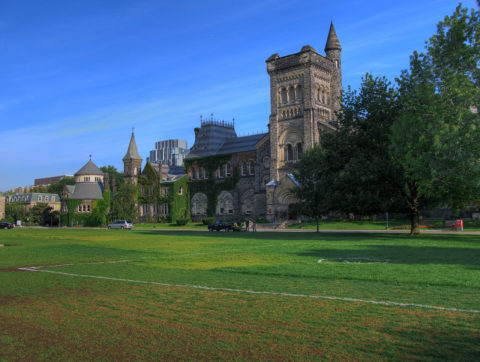
University College, University of Toronto, 31 July, 2008.
Photo by “SurlyDuff” via Wikimedia Commons.
Last week, 53 top Canadian academic administrators convened in Ottawa for a biannual membership meeting of Universities Canada, a group dedicated to “providing university presidents with a unified voice for higher education.” The 89-page meeting agenda, which was leaked to me after the event, makes for an interesting read.
The pandemic has been a challenging period for Canadian universities, as the adoption of virtual classrooms has caused some families to wonder whether the traditional bricks-and-mortar education model is worth the price. Many Canadian schools are financially dependent on foreign students, an income source that’s now in flux thanks to COVID. In April, Laurentian University in Ontario declared itself insolvent, cut dozens of programs, and laid off about 100 professors — an unprecedented development.
And yet none of these issues is listed on the October 27th Universities Canada meeting agenda. Laurentian University isn’t mentioned at all, in fact. And the only substantive reference to the COVID pandemic consists of an aside to the effect that “women are disproportionately being impacted negatively during the pandemic”. Instead, all of the agenda’s main action items are dedicated to social justice.
The first item updates attendees on Universities Canada’s multi-year effort to draft a statement on “Social Impact Principles”. A subsequent action item details the “Scarborough National Charter”, a document aimed at “mov[ing] from rhetoric to meaningful concrete action to address anti-Black racism and to promote Black inclusion.” There’s also a related item titled “Equity, Diversity, and Inclusion,” under which members were asked, by formal motion, to affirm their commitment to an affirmative-action doctrine known as “Inclusive Excellence”.
Later in the document, there appears an action item relating to “Principles of Indigenous Education”, detailing the by-now year-and-a-half-long consultation process aimed at renewing Universities Canada’s original Indigenous Education manifesto (which itself was announced with much fanfare in 2015 after a year of work). Among the proposed editing refinements are that language be added “recognizing [the] intersectionality of Indigenous identities”; and that a new preamble be added “acknowledging that Universities Canada and its member universities are located on Indigenous lands across Turtle Island.” The final version, it’s predicted, will be ready by April 2022.
But the agenda’s real centrepiece is a 46-page standalone report commissioned by Universities Canada, called Building a Race-Conscious Institution: A Guide and Toolkit for University Leaders Enacting Anti-Racist Organizational Change.
The report’s main theme is that university leaders must decisively reject the idea of “colour-blindness” (which the author asserts should properly be termed “colour evasion”) in favour of becoming “race-conscious individuals” who “explicitly reflect on their ethno-racial identity and group membership.” The author also exhorts university presidents to “actively examine their personally mediated racial biases, consider their individual experiences with respect to racism, and acknowledge their relative race-related marginalization or privilege in the larger society.” To persist in colour evasion, the author warns, is to erect “discursive barriers to antiracist organizational change.”
And colour evasion is just one of 10 listed “dominant ideologies and pervasive narratives [that] undermine efforts to counteract racism.” Among the other “barriers” listed by the author are “equal opportunity”, “tradition”, and “tolerance”. The report also contains tangents on “white fragility”, “allyship”, and the “ethics of care” prescribed by “critical feminist and antiracist scholars” — as well as instructions regarding the use of certain words and phrases. For instance: “Representation gaps among students, scholars, and staff in higher education are not ‘achievement’ gaps, but rather ‘opportunity’ gaps.”
August 28, 2021
QotD: Social media capitalizes on “the biggest Faculty Lounge Fallacy of them all”
… Twitter (etc.) are specifically set up in such a way as to discourage any real-world action. Basically it’s the faculty lounge writ large. If you’ve been to college in the last half-century, you surely noticed that the faculty are Very Very Concerned about all kinds of stuff … but that the stuff they’re Very Very Concerned about is always happening to some obscure group thousands of miles away.
Even when they’re pretending to Care Very Much about, say, “systemic racism” in “America”, it would never occur to them to go down to the ghetto that, in many notorious cases, is literally right next door to do anything about it. They could find out everything they ever wanted to know — and then some!! — about “the Black Experience” by driving down MLK Blvd. at three in the morning, but somehow they never do. The way you win at victim bingo in the ivory tower is you find the most obscure group, the furthest away, to chastise your peers for not caring enough about. If what you say could possibly have any real-world application in the lives of anyone anybody you know had even the possibility of ever meeting, you lose.
Such is Social Media, so it’s no surprise that the Twitterati all fall victim to the biggest Faculty Lounge Fallacy of them all: That saying something is the same as doing something. Or, in other words, and not to put too fine a point about it, they act like passive-aggressive little bitches, like cat ladies around the company water cooler. You could get Johnny from Accounting to stop leaving his half-eaten sandwich in the lunch room fridge by simply asking him to stop … or you can have daily hen parties about it for weeks, months, years, squawking about how some people need to get some common courtesy … and meanwhile Johnny from Accounting goes on doing it, oblivious.
The genius of Facebook, Twitter, etc. — and it IS genius; sick, evil, twisted genius — is that they figured out how to monetize this.
Severian, “Internet Tough Guys”, Rotten Chestnuts, 2021-05-10.
July 11, 2021
An “ongoing moral panic against the specter of ‘white supremacy’, which is now bizarrely regarded as an accurate description of the largest, freest, most successful multiracial democracy in human history”
From Andrew Sullivan‘s Weekly Dish free excerpt:
“What happened to you?”
It’s a question I get a lot on Twitter. “When did you become so far right?” “Why have you become a white supremacist, transphobic, misogynistic eugenicist?” Or, of course: “See! I told you who he really was! Just take the hood off, Sully!” It’s trolling, mainly. And it’s a weapon for some in the elite to wield against others in the kind of emotional blackmail spiral that was first pioneered on elite college campuses. But it’s worth answering, a year after I was booted from New York Magazine for my unacceptable politics. Because it seems to me that the dynamic should really be the other way round.
The real question is: what happened to you?
The CRT debate is just the latest squall in a tempest brewing and building for five years or so. And, yes, some of the liberal critiques of a Fox News hyped campaign are well taken. Is this a wedge issue for the GOP? Of course it is. Are they using the term “critical race theory” as a cynical, marketing boogeyman? Of course they are. Are some dog whistles involved? A few. Are crude bans on public servants’ speech dangerous? Absolutely. Do many of the alarmists know who Derrick Bell was? Of course not.
But does that mean there isn’t a real issue here? Of course it doesn’t.
Take a big step back. Observe what has happened in our discourse since around 2015. Forget CRT for a moment and ask yourself: is nothing going on here but Republican propaganda and guile? Can you not see that the Republicans may be acting, but they are also reacting — reacting against something that is right in front of our noses?
What is it? It is, I’d argue, the sudden, rapid, stunning shift in the belief system of the American elites. It has sent the whole society into a profound cultural dislocation. It is, in essence, an ongoing moral panic against the specter of “white supremacy”, which is now bizarrely regarded as an accurate description of the largest, freest, most successful multiracial democracy in human history.
We all know it’s happened. The elites, increasingly sequestered within one political party and one media monoculture, educated by colleges and private schools that have become hermetically sealed against any non-left dissent, have had a “social justice reckoning” these past few years. And they have been ideologically transformed, with countless cascading consequences.
Take it from a NYT woke star, Kara Swisher, who celebrated this week that “the country’s social justice movement is reshaping how we talk about, well, everything.” She’s right — and certainly about the NYT and all mainstream journalism.
This is the media hub of the “social justice movement”. And the core point of that movement, its essential point, is that liberalism is no longer enough. Not just not enough, but itself a means to perpetuate “white supremacy”, designed to oppress, harm and terrorize minorities and women, and in dire need of dismantling. That’s a huge deal. And it explains a lot.
July 9, 2021
QotD: Woke fanaticism
The strange figures known as Wokists currently destroying America aren’t just reprises of earlier enemies. They represent something rather new. The political cult of Wokism combines the worst aspects of every political cult in history.
Whether they realize it or not, Wokists themselves combine the lunatic loyalty of the Manson family with the hollow pseudo-joy of Jonestown residents, the racism of National Socialists, the inhumanity of Mao Tse-Tung, the bratty tantrums of Veruca Salt, the nihilism of Bakunin-style anarchists, the totalitarianism of Stalin’s Soviet Union, the child torture and sacrifice of the Mayans, the derangement of Heaven’s Gate followers, the sadistic violence of the Jacobins, and the ruthless control-freakism of the current Chinese Communist Party.
Now add to that noxious syncretic blend the Wokist use of powerful communication technologies to shape narratives and meta-narratives, destroy opponents, and recruit new converts, and you’ve got yourself a thing.
Through it all, a counterfeit moral imperative with a deceptively appealing name (“social justice”) drives the cult. That counterfeit imperative casts all existence as one great battle between Good (Wokism) and Evil (everything that is not Woke). It denies any constraints on efforts to win that battle. It entails an obsessive totalitarianism. It forbids critical self-examination of itself. Adherents of the cult are Knowers of the One True Truth. They are crusaders in righteous battle. Only victory matters. Anyone so much as questioning the One True Truth, inside or out, must be destroyed.
Tal Bachman, “We Have Met the Enemy”, Steyn Online, 2021-04-06.
June 26, 2021
QotD: Surfing the waves of resentment as a political career
Those who, for political reasons, keep past oppression or crime constantly before the mind of the descendants of the victims (that is to say, descendants of the victim group, not necessarily of the individual victims) help to foment and foster a deep mistrust or resentment that is no longer justified, but which can lead people in effect to cut off their noses to spite their faces.
This is to the great advantage of political entrepreneurs who surf resentment as surfers ride waves in Hawaii; and such resentment, the most damaging of all emotions, can easily become a self-reinforcing loop. It is not that past oppression or crime should be forgotten, much less denied, but that past achievements and change for the better must also be recognised, lest oppression and crime come to occupy minds entirely and distort decisions.
It is the same with injustice. It is important to oppose injustice, but just as important not to see it everywhere. To ascribe everything that you think undesirable to injustice may blind you to its real causes.
Theodore Dalrymple, “History and Self-Perpetuating Resentment”, The Iconoclast, 2021-03-20.
June 24, 2021
“[M]any of the woke genuinely do not understand why anyone finds their politics, or their political tactics, threatening”
In The Line, Joseph Heath tries to explain why many adherents of the wokist ideology fail to understand why anyone could possibly be against their policies or their tactics:
After several years of creeping illiberalism under the guise of progressive politics, American liberals are finally getting their act together. They are pushing back, creating several organizations committed to combating the influence of “woke” politics and ideology. They have momentum, not just because many woke mantras like “defund the police” have proven spectacularly unpopular, but also because there is genuine growing alarm about the intolerant and authoritarian brand of politics that has become associated with the woke left.
Unfortunately, many of the woke genuinely do not understand why anyone finds their politics, or their political tactics, threatening. In particular, the accusation that they are being authoritarian, or that “cancel culture” is a threat to freedom of expression, is one that they are simply unable to process.
There is a reason for this — and one that’s worth understanding. There are several key phrases that play an enormously important role in woke politics (e.g. “safety”, “mental health”, “microaggression”, “bullying” and even “human rights”) which they use to deflect the accusation of authoritarianism. If you adopt the right words, it’s easier to convince yourself that you’re the good guys even as you’re acting like the bad ones.
I want to take a shot at explaining how this works.
The most important thing to understand about woke politics is that it is not a conventional form of illiberalism, it is better thought of as a type of “illiberal liberalism”. It involves making a set of political demands that are fundamentally illiberal, but then articulating them in a way that fits the conventional structure of liberal political discourse. Because of the way that their complaints are packaged, the woke are able to brush off criticism of their tactics.
Take an issue like freedom of speech. There are various versions of this traditionally liberal virtue; predominant among them, is that those who hold this belief are opposed to content-based restrictions on speech. In the old days, lots of politicians didn’t really believe in freedom of speech, as many among the ruling class maintained straightforwardly illiberal views.
June 6, 2021
Decoding NPR’s revised approach to reporting in a social justice age
At Ace of Spades H.Q., K.T. listens to some NPR broadcasts (so you don’t have to) including an insight into how NPR and probably other media organizations are changing how they report the news:
We Hold These Truths: How Newsroom Leaders Wrestled With Covering A Tumultuous Year
This was sort of a panel discussion (light on the “discussion”), with commentary on things like how social media pressured newsrooms, for example, to say that “police murdered George Floyd” rather than “George Floyd died”.
But I kind of homed in on an academic phrase that bothers me. Sara Just from PBS:
Yeah, I think that you’re absolutely right. There’s been a deeper understanding and deeper conversation about how much our lived experiences play into the reporting that we do. And there’s no question that it does for each and every one of us in different ways. And I think that lived experience we especially highlight now is valuable, whether it’s race or gender or the challenges. I don’t think people with those lived experiences have to carry the burden, though, of being the only ones to report on it by any means. And so that’s something that we are always balancing. (emphases mine)
So, are they balancing whether or not people without “lived experiences” can report on issues involving “lived experiences”? Like Lori Lightfoot deciding she would only do one-on-one interviews with journalists of color? Will white people be allowed to report on stories involving black people? Will men be allowed to report on stories involving women?
This is partly about local sources, but it is largely about people thought of as being in “oppressed groups”. This panel is informing us that news reporting will now be filtered through the language and perspective of Critical Social Justice, whether we realize it or not.
The indispensable Translations from the Woke at New Discourses provides the following information on Lived Experience:
In the Theory of Critical Social Justice, for what turn out to be surprisingly deep and philosophically (almost) sophisticated reasons, lived experience is the overwhelmingly primary way in which knowledge can be obtained. This should not be mistaken to mean one’s firsthand experience, which most of us already recognize to provide a rather weak claim upon knowledge, though it is both implied and claimed that this is what “lived experience” refers to in Critical Social Justice. Lived experience, as Critical Social Justice uses the term, refers more specifically to one’s life experiences in allegedly systemic power dynamics of dominance and oppression that shape society structurally as understood with a critical consciousness and interpreted through Theory. That is, one’s “lived experience” refers to the interpretation that Critical Social Justice Theory gives for the anecdotal accounts of experiences one has had.
Because “lived experience” refers to an interpretation through Theory, it is only the “lived experience of oppression,” as Theory will have it, that counts …
It appears that you can’t really understand the reporting on PBS, and probably NPR, now unless you have studied Critical Social Justice.
Certainly, the claimed “lived experience” of members of dominant groups cannot be in any way used to challenge or dispute the assertions of Theory or those claiming to speak from it …
This restriction extends to members of “minoritized” groups who disagree with Theory as well — Theory cannot be authentically disagreed with. One might think that the lived experience of a member of oppressed groups would be admissible as a valid challenge to the claims of Theory, but this not so. They may be talking about their own experiences in life, but they aren’t appealing to lived experience, which must comport with Theory …
This is all very confusing and appears to be exactly what it is — a form of manipulating knowledge and epistemology as a means of asserting power and rigging the system such that those assertions of power cannot be challenged. Nevertheless, it isn’t merely an application of power and has a rather interesting and deep philosophical explanation that must be understood to understand why “lived experience” holds the status that it does and why it must comport with Theory to be granted veridical status and epistemic weight. This has everything to do with the fact that the roots of Critical Social Justice are in critical theories and, especially, postmodern philosophy.
There is much more, but it is way too deep to include here.
The NPR panel goes on to discuss new understandings of “balance” and “objectivity”. They do not intend to be objective. “Balance” will mean something different than what it has meant in the past in the news business.
Many people have found the way that TV news shows report on events since 2016 to be rather different than what they’d been used to before that. Some changes are subtle and others are quite blatant and hard to ignore unless you already agree with the viewpoint of the presenter. TV news used to at least pretend to present the news objectively but from the start of the Trump presidency most media outlets abruptly changed from a pseudo-objective (but leaning progressive) to an outright full-on progressive stance from start to finish with little or no attempt to provide other points of view for balance.
April 25, 2021
They don’t call it “neo-Marxism”, but that’s what Critical Race Theory really is
In City Journal, Christopher Rufo explains why Critical Race Theory is a natural child of orthodox Marxist thought:
Critical race theory is an academic discipline, formulated in the 1990s and built on the intellectual framework of identity-based Marxism. Relegated for many years to universities and obscure academic journals, it has increasingly become the default ideology in our public institutions over the past decade. It has been injected into government agencies, public school systems, teacher training programs, and corporate human-resources departments, in the form of diversity-training programs, human-resources modules, public-policy frameworks, and school curricula.
Its supporters deploy a series of euphemisms to describe critical race theory, including “equity,” “social justice,” “diversity and inclusion,” and “culturally responsive teaching.” Critical race theorists, masters of language construction, realize that “neo-Marxism” would be a hard sell. Equity, on the other hand, sounds non-threatening and is easily confused with the American principle of equality. But the distinction is vast and important. Indeed, critical race theorists explicitly reject equality — the principle proclaimed in the Declaration of Independence, defended in the Civil War, and codified into law with the Fourteenth and Fifteenth Amendments, the Civil Rights Act of 1964, and the Voting Rights Act of 1965. To them, equality represents “mere nondiscrimination” and provides “camouflage” for white supremacy, patriarchy, and oppression.
In contrast to equality, equity as defined and promoted by critical race theorists is little more than reformulated Marxism. In the name of equity, UCLA law professor and critical race theorist Cheryl Harris has proposed suspending private property rights, seizing land and wealth, and redistributing them along racial lines. Critical race guru Ibram X. Kendi, who directs the Center for Antiracist Research at Boston University, has proposed the creation of a federal Department of Antiracism. This department would be independent of (i.e., unaccountable to) the elected branches of government, and would have the power to nullify, veto, or abolish any law at any level of government and curtail the speech of political leaders and others deemed insufficiently “antiracist.”
One practical result of the creation of such a department would be the overthrow of capitalism, since, according to Kendi, “In order to truly be antiracist, you also have to truly be anti-capitalist.” In other words, identity is the means; Marxism is the end.
An equity-based form of government would mean the end not only of private property but also of individual rights, equality under the law, federalism, and freedom of speech. These would be replaced by race-based redistribution of wealth, group-based rights, active discrimination, and omnipotent bureaucratic authority. Historically, the accusation of “anti-Americanism” has been overused. But in this case, it’s not a matter of interpretation: critical race theory prescribes a revolutionary program that would overturn the principles of the Declaration and destroy the remaining structure of the Constitution.
April 16, 2021
The continued evolution of the Marxist class struggle – “Goodbye the working class, hello to the wokeing class”
Arthur Chrenkoff provides some background on the evolution of Marxist thought as they abandon efforts to rouse the working classes of the west against their capitalist oppressors and switch to attempting to rouse the “wokeing class” against their deplorable racist, homophobic, transphobic, sexist white male cisgendered oppressors:
In developing his philosophy, Karl Marx posited human history as a struggle of two sections of society: the minority who hold the all power and the powerless majority. In Marx’s time, the minority was termed the capitalist class, the bourgeoisie, or simply The Capital, those controlling (owning and benefitting from) the means of production, while the majority was called the working class, or the proletariat, the masses who sell their labour, and whose collective toil makes the capitalists rich. The essential dynamic of a society is one of power: who has it and who doesn’t, and how it’s exercised (or as Lenin said, “who whom?”). It’s a zero sum equation: all or nothing, the one or the other, the powerful and the powerless, the oppressors and the oppressed. There is a moral dimension to this dichotomy: the former, by virtue of their position, are the villains, the latter the virtuous. It’s also absolutist: the individual doesn’t matter and individuality is an irrelevant illusion; you are the class to which you belong.
One of the most important aspects of this group dynamic is that the dominant class uses its position and power to shape the society in accordance with its needs. Thus, all the institutions, laws, traditions and phenomena reflect the interests of the ruling class; they are designed to benefit them and only them and keep their power entrenched. And what benefits one class invariably harms the other: the masses. You can thus say that in a capitalist society everything’s classist.
The twentieth century dashed the hopes of Marx’s disciples that the proletariat would revolt against and overthrow their capitalist oppressors. The working class was bought off with better working conditions and rising incomes: a house, a car, and a football game. While elsewhere communism triumphed through coups and foreign invasions, in the Western world genuine revolutions did not happen; capitalism is still around. While the working class might have disappointed and let down Marxists, the basic Marxist thinking has not changed: the society is divided into two mutually hostile groups, the oppressors and the oppressed. Now we just need to find the different oppressed and we’ll have another crack at destroying capitalism and creating our socialist utopia. Out with the purely economic divisions, in with racial, gender and sexual ones. Goodbye the working class, hello to the wokeing class.
Fast forward to 2021, and the neo-Marxist struggle continues to gather wind in its sail. On the one side the power-holders: white, male, straight; on the other the powerless: women, people of colour, other sexualities. The actors might have been changed but the essential drama remains the same: the struggle of the virtuous but powerless oppressed majority against their dastardly rulers and the system created for their benefit and everyone else’s disadvantage. Just as in the past every aspect of society was biased against and harmful to the proletariat, so now it is against the proletariat 2.0: everything’s racist – and sexist, and homophobic and transphobic. This is also why the activists describe racism as “systemic”; not because there are still Jim Crow laws in existence, and legal segregation and discrimination, but because the system created by the “white” society by its very nature must be oppressive and hostile to anyone non-white. Piecemeal fixing problems and gradual reforms are useless; the only solution is a radical societal transformation that elevates the oppressed and casts down the oppressors.
March 9, 2021
QotD: Canadian culture
Everywhere one turns one sees a tendency toward mimesis — we tend to copy rather than invent — qualified by intellectual emptiness. In other words, it may be that the vacancy of the Canadian mind reflects the vacancy of the Canadian landscape. Of course, much of the land is variegated — lakes, rivers, forests, the impressive mountain ranges running down the length of “beautiful British Columbia” — in the same way, metaphorically speaking, that we can boast a number of resonating exceptions to the staple of tepid cultural and intellectual sameness.
One thinks of novelist Mordecai Richler, poet Irving Layton, critical minds Harold Innis, Marshall McLuhan and Northrop Frye, musicians Leonard Cohen and Gordon Lightfoot. Our founding father, Sir John A. Macdonald, was the ne plus ultra of our political class; there has been none like him since, which may explain why he is now on posthumous trial for war crimes and a hue and cry has gone up to remove his statues and rename eponymous schools.
The constitutive factor, however, exceptions aside, is the “howling emptiness” of a vast landmass that may partially account for the emptiness of our intellectual topography — if, as Jared Diamond had argued in Guns, Germs and Steel, geography governs the development of culture and spirit.
Any nation the preponderance of whose citizens regularly elects left-wing political parties; accepts single-payer healthcare; believes in the efficacy of the welfare state; endorses the hoax of global warming; accommodates swarms of third-world immigrants and refugees who have no love for or understanding of a country becoming an open-to-all multicultural tombola with the highest proportionate rate of immigrants in the Western world; has allowed its educational industry, from pre-school to graduate school, to be corrupted possibly beyond retrieval by lockstep Leftism, “diversity and inclusion,” and “social justice” claptrap; has caved to the feminist and campus-rape fable; dutifully takes CBC Leftist propaganda as gospel; has fallen for the 16th Century meme of the “Noble Savage” in its dealings with the aboriginal peoples; extravagantly celebrates a second-rate rock band like The Tragically Hip and names a street after it; reads (when it does read) tedious scribblers like the acclaimed Joseph Boyden and Ann-Marie MacDonald; and gives a complete ignoramus like Justin Trudeau a majority government on the strength of name and coiffure, cannot be regarded as informed, well-educated or in any way distinguished. Unlike the U.S., there are no cracks, to quote Leonard Cohen, where the light gets in. The Canadian political, cultural and academic spectrum has gone dark from end to end.
David Solway, “The Canadian Mind: A Culture So Open, Its ‘Brains Fall Out'”, PJ Media, 2018-10-10.
December 28, 2020
Titania McGrath, unmasked
In The Critic, Andrew Doyle talks about creating the “Titania McGrath” persona on Twitter and what happened after he was “outed” as the writer behind the tweets:
My most recent “outing” was as the writer of Titania McGrath, an intersectional activist who began life on Twitter in order that she might chastise the unwoke for their moral impurity and proclaim her infinite virtue to the cybersphere. For those of you who are not on Twitter — that’s the 80 per cent of the country who actually value their time on earth — you may not be aware that such self-aggrandising behaviour is considered acceptable. On Twitter, it’s the norm. It’s effectively a digital playground in which grown adults toss their half-baked opinions around like pies in that scene from Bugsy Malone.
From Titania’s earliest appearance, I resolved to stay anonymous — not to cause mischief, but more for the fun of it. If people believed she was real, I reasoned, I could enter into dialogue with her detractors. This meant that the satirical impact would not be restricted to what Titania said, but how others reacted to her. Her tweets are designed to ridicule the excesses of the social justice left, but her interactions tend to expose the folly of those on the right who take her at face value and lose their temper. As such, her targets are not limited to one side of the political spectrum.
[…]
Having been revealed as the author, most of this venom was now channelled in my direction. The extent of the abuse was often unfathomable, and some even went so far as to send direct threats of violence. It’s a curiosity of our times that the most vicious and bullying online behaviour tends to be exhibited by those who claim to be on the side of empathy and compassion.
I have never quite understood the kind of anger that comedy and satire can provoke. As someone who has seen my fair share of stand-up, I have often found that the best response to a joke that does not amuse me is simply not to laugh. It would never occur to me to berate other members of the audience for their poor taste, or to take to social media and complain about the comedian in question. As someone who does not suffer from narcissistic personality disorder, I am well aware that my personal sense of humour is not the benchmark for the entirety of humankind. When it comes to comedy criticism, “that’s not funny” is about as insightful as “that’s not erotic”. Try telling a fetishist that studded PVC nuns’ habits are objectively devoid of sexual appeal, and he will probably be able to show you some homemade videos that will quickly prove you wrong.
It is of course entirely natural to feel displeasure when one’s worldview is being ridiculed. I do not blame the poor writer for the Observer who suggested that copies of Titania’s first book would be given to every person in Hell, and that “lampooning the language of social justice is a cheap shot”. I have some sympathy for her position. If I were absorbed in an ideology that mistrusts humour and perceives that jokes have the potential to “normalise hate”, I would doubtless be similarly vexed by anyone who had the temerity to mock it. But that’s the trouble with religious belief. However important it seems to one’s sense of personal identity, there is no way to protect our icons from desecration by unbelievers.

